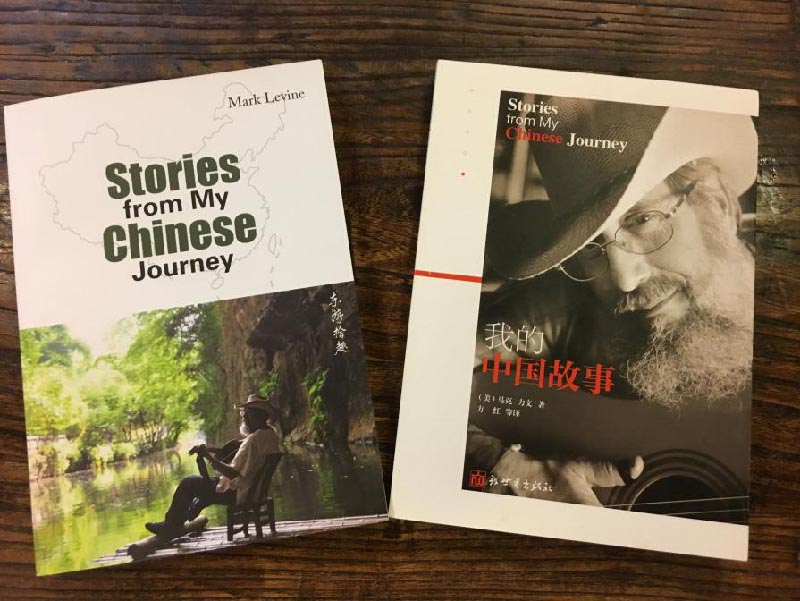Mark Levine presents his foreigner's permanent residence identity card, a new version of Chinese "green card" in Beijing, capital of China, July 17, 2017. (Xinhuanet/Li Xia)
The American Mark Levine has been excited for a week since he got the new version of China's "green card", which was launched in this June by the Ministry of Public Security (MPS).
"It's more convenient and there is much to explore." he told Xinhuanet in an interview.
Coming to China in 2005, Mark, in his 60s, has spent 12 years teaching in China's universities, from Jiangsu's Huaiyin Normal University in east China to Beijing's Minzu University of China.
In 2014, nominated by his work unit the Minzu University, he was awarded by the Chinese government the Chinese Friendship Award, for his commitment to China's university education as well as to the China-U.S. exchanges.
"I'm the only person that Minda has ever nominated." Mark said proudly.
This marks the beginning of Mark's identity transition, from a visa-holding foreigner to a permanent resident of China.
Mark got his first Chinese "green card" in April, 2016, which was named "foreigner's permanent residence card".

Photo shows Mark Levine's book Stories from My Chinese Journey (L) and its Chinese version (R). (Xinhuanet/Li Xia)
It's a significant reform to the rules regarding permanent residence for foreigners, since "it can be used independently without passport for matters related to finance, education, health care, travel, accommodation and others," Mark said.
"The original green card is a piece of plastic with no computer chip embedded in," Mark expounded. Previously when he registered for a room in a hotel, he was asked to show his green card, and also his passport.
But the situation has improved. Mark talked about his latest trip to Wuhan after he got his new card. "I only give my green card, and that's no problem." Mark said.
"It's really exciting because it becomes the sole ID card required to live and work in China," Mark extolled. "It's functional and convenient,"he added.
Mark has not used it for buying train or airplane tickets, but he expected for it.
"I have an upcoming trip to Yunnan, and I'm going to use it for airplane tickets." Mark was bubbling with excitement.
As for the application process for a new card, Mark commented: "it's very easy."
The officer called him around 20 business days after he submitted the copy of his old card and passport, two passport photographs as well as a housing registration form in his original registration authority.
"Also, you have to pay 300 RMB," Mark added.
Foreigners trying to apply for China's "green cards" always grumble about the slow approval process. Mark hopes to blunt their concerns and encourage more foreigners to have a try.
He lauded Chinese government's efforts in easing its residence and entry policies for foreigners.
"I'm always encouraging when people are skeptic about it," said Mark. "Just try it and it will become successful," he added.
But the one newly released is renamed as "foreigner's permanent residence identity card", which means "it's just like the ID card of Chinese citizens," Mark said.

















